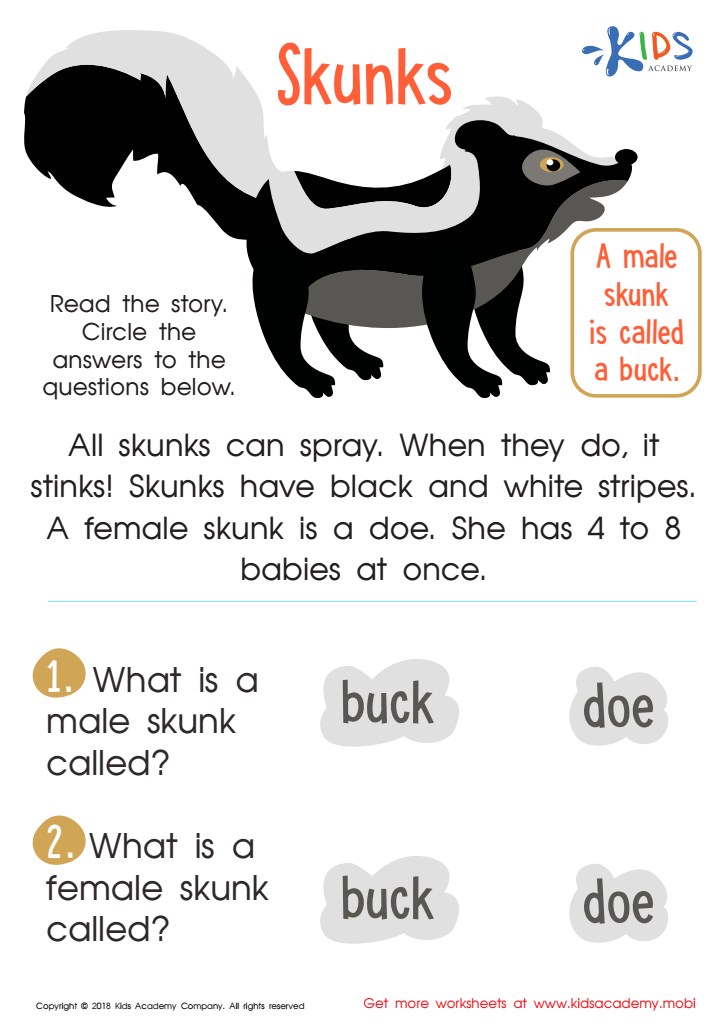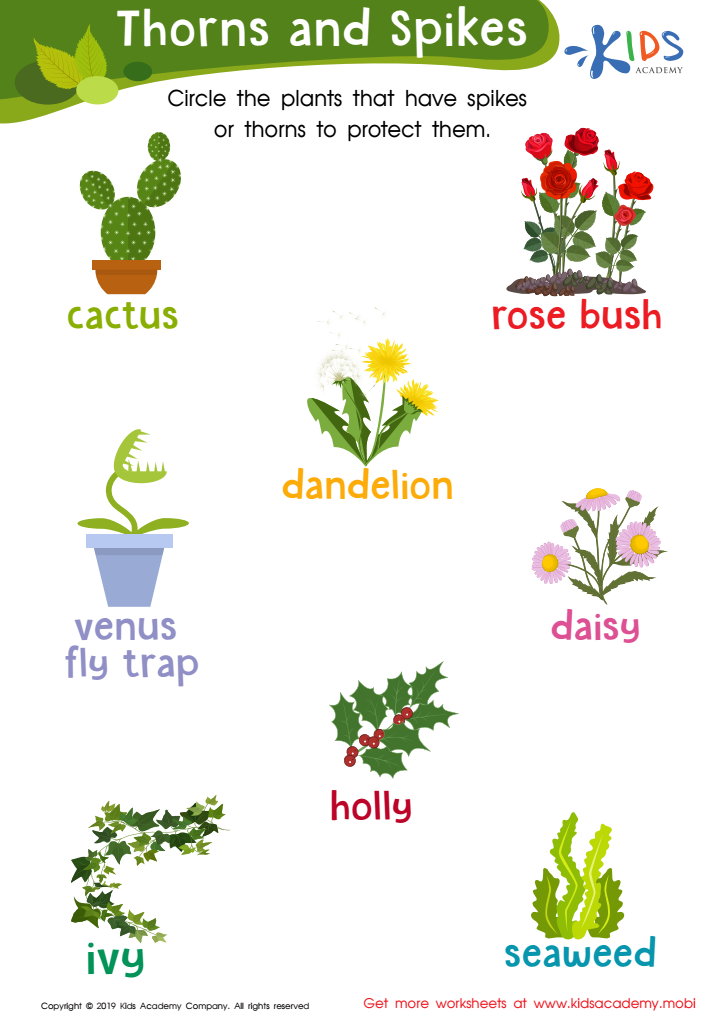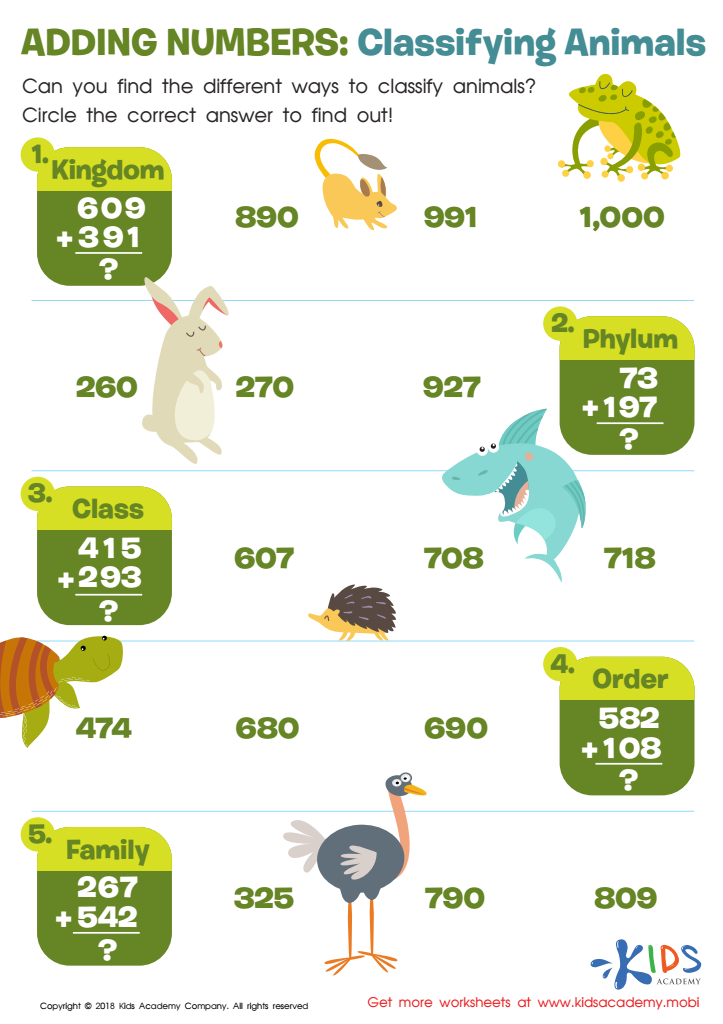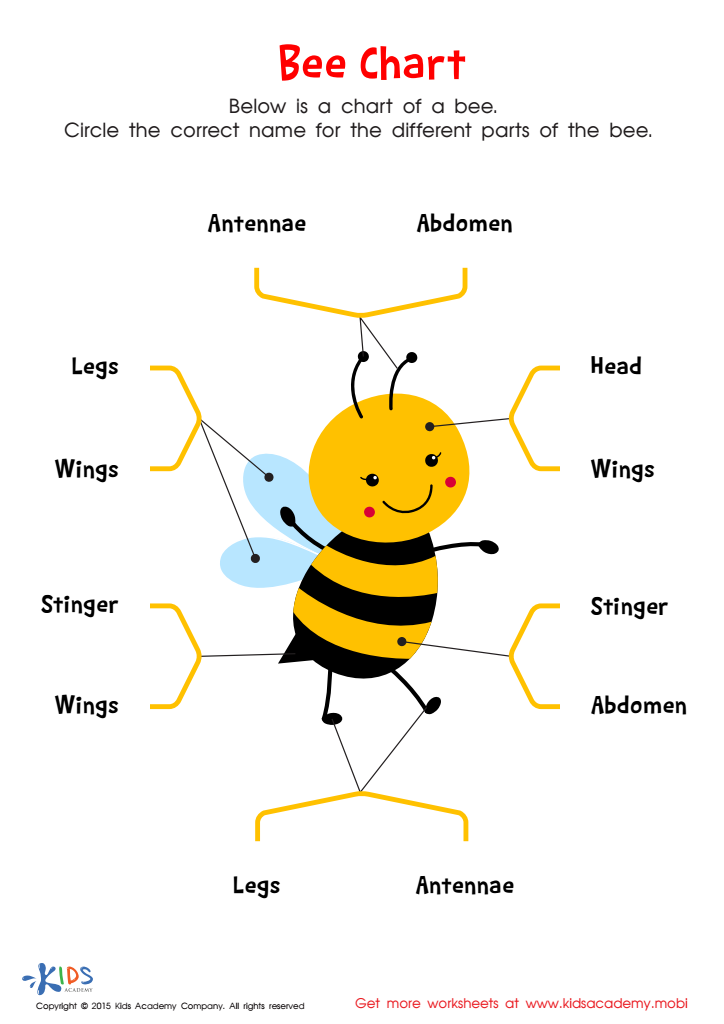Science knowledge Normal Worksheets for Ages 3-7
5 filtered results
-
From - To
Discover our fun and educational Science Knowledge Normal Worksheets for Ages 3-7 at Kids Academy! Perfectly tailored for early learners, our worksheets are designed to spark curiosity and enhance understanding of basic scientific concepts. From exploring the animal kingdom to understanding the natural world, these engaging activities make learning enjoyable. Colorful and interactive, our worksheets help build essential skills like observation, classification, and logical thinking. Ideal for teachers and parents, our resources support both classroom learning and homeschooling. Foster a love for science and develop young minds with Kids Academy’s expertly crafted worksheets today!


Skunks Worksheet


Thorns and Spikes Worksheet


Adding Numbers: Classifying Animals Worksheet


Space: Assessment 2 Worksheet
Fostering an early interest in science for children ages 3-7 lays a critical foundation for lifelong learning and curiosity. During these formative years, young minds are particularly receptive to new information and experiences. Introducing scientific principles early helps develop important cognitive skills such as critical thinking, problem-solving, and logical reasoning. These skills are not only essential for understanding science but are also transferable across all subject areas.
Scientific exploration at this age can be as simple as observing nature, mixing colors, or understanding basic cause and effect—activities that naturally engage children's curiosity. Such activities encourage children to ask questions, make predictions, and explore their surroundings, fostering a sense of wonder and discovery. Additionally, early exposure to science promotes language development as children learn new vocabulary and concepts.
Parents and teachers play a vital role in fostering this environment. By providing appropriate resources and engaging in science-related activities, they build a supportive atmosphere for inquiry and experimentation. This can lead to increased confidence and enthusiasm toward learning. Moreover, early science education can help bridge gaps in understanding that might occur later, making more complex scientific topics less daunting in future educational stages. Ultimately, caring about early science education helps cultivate informed, curious, and capable individuals.
 Assign to My Students
Assign to My Students

















